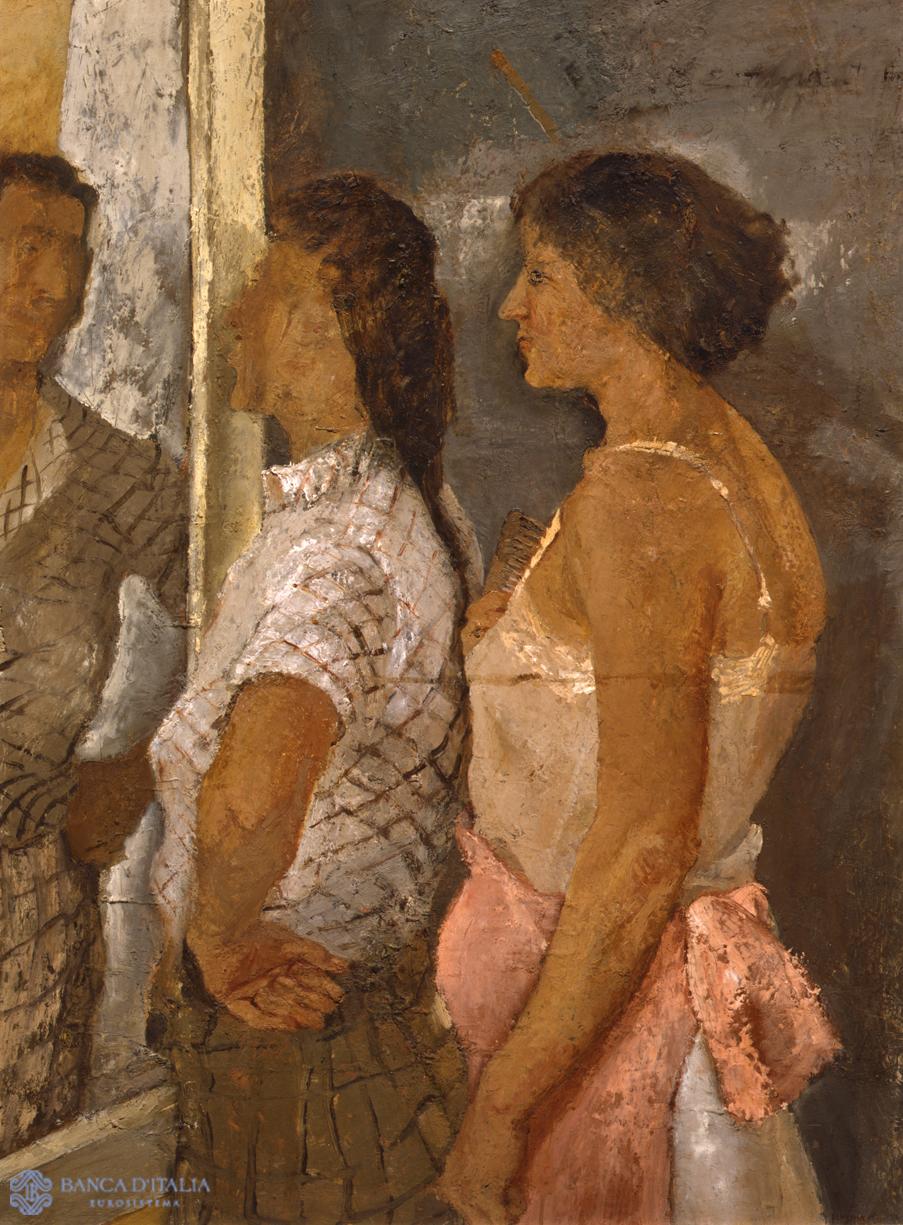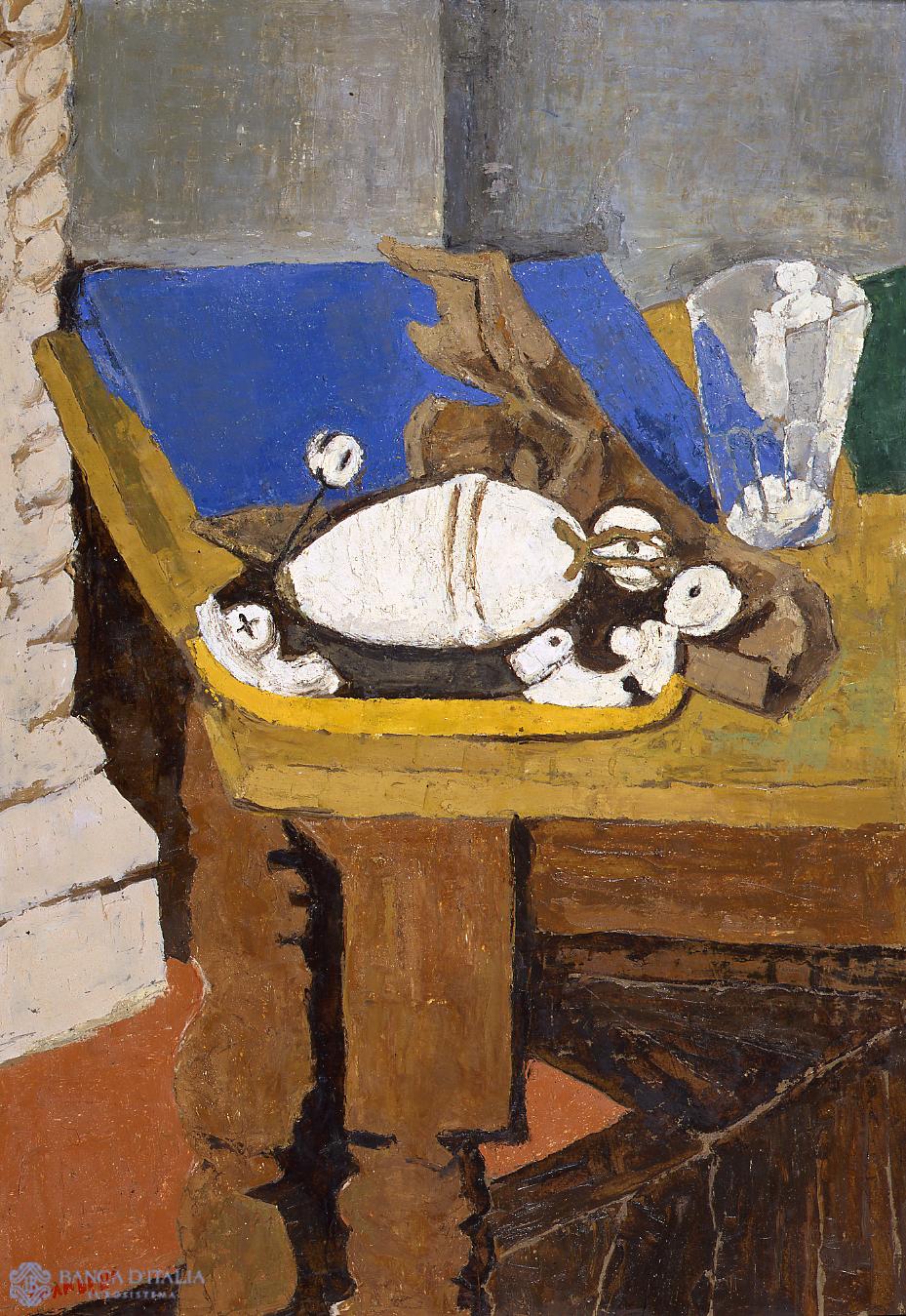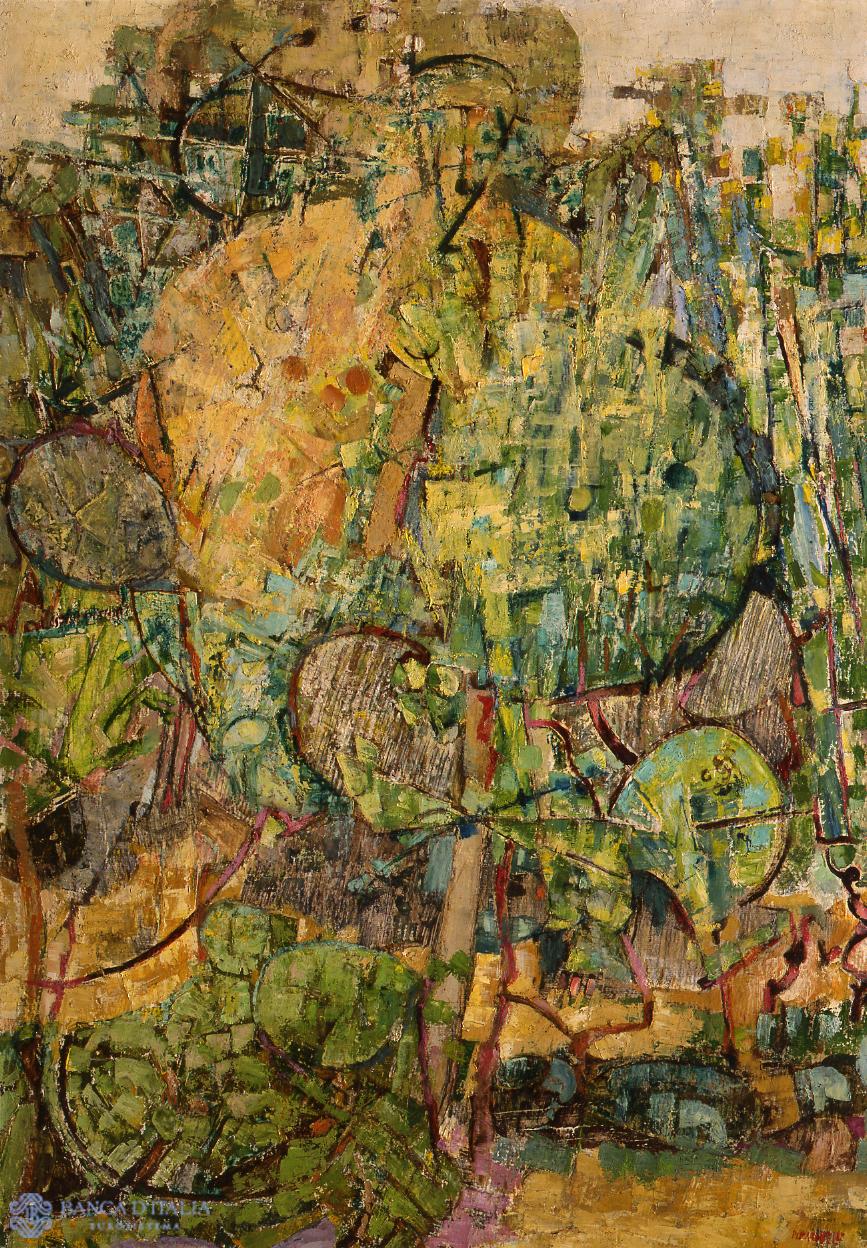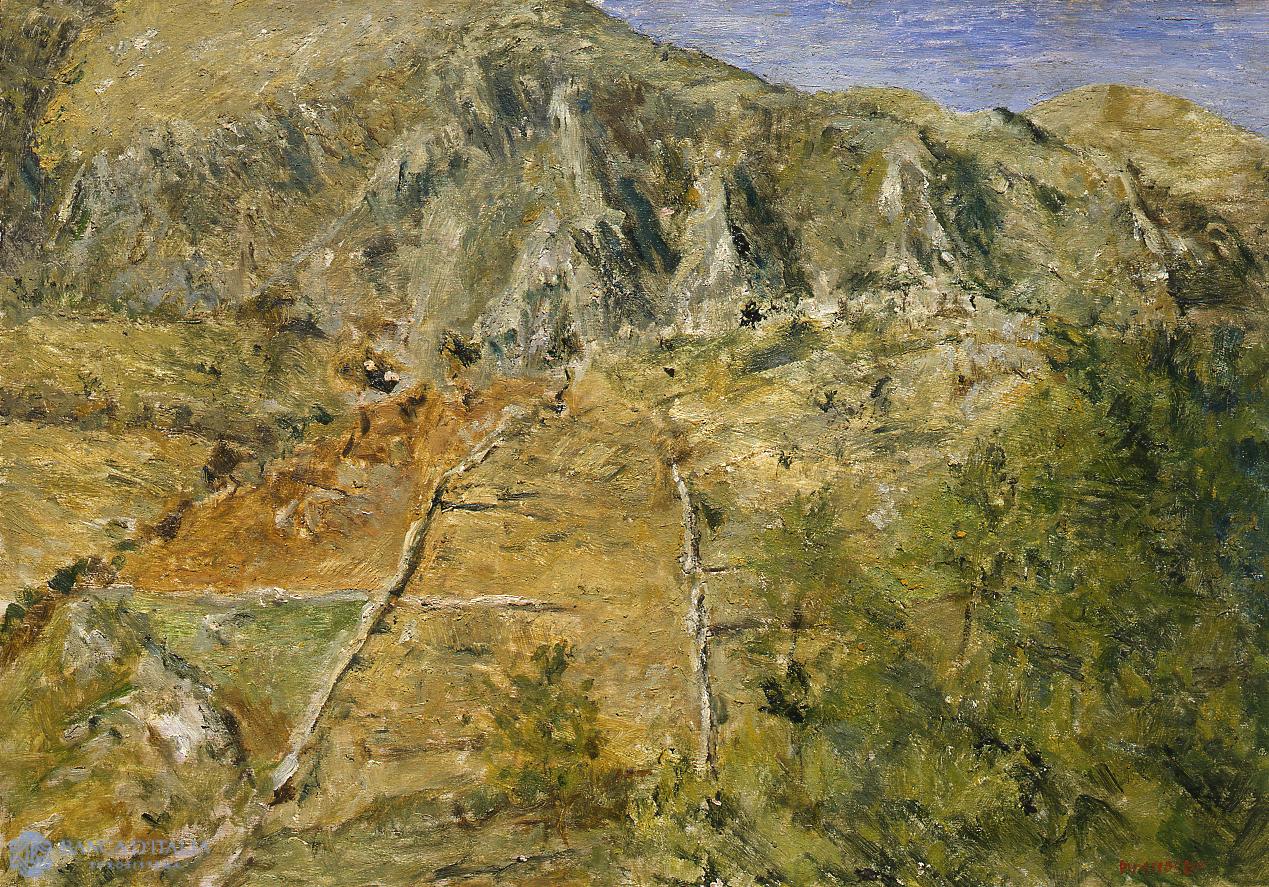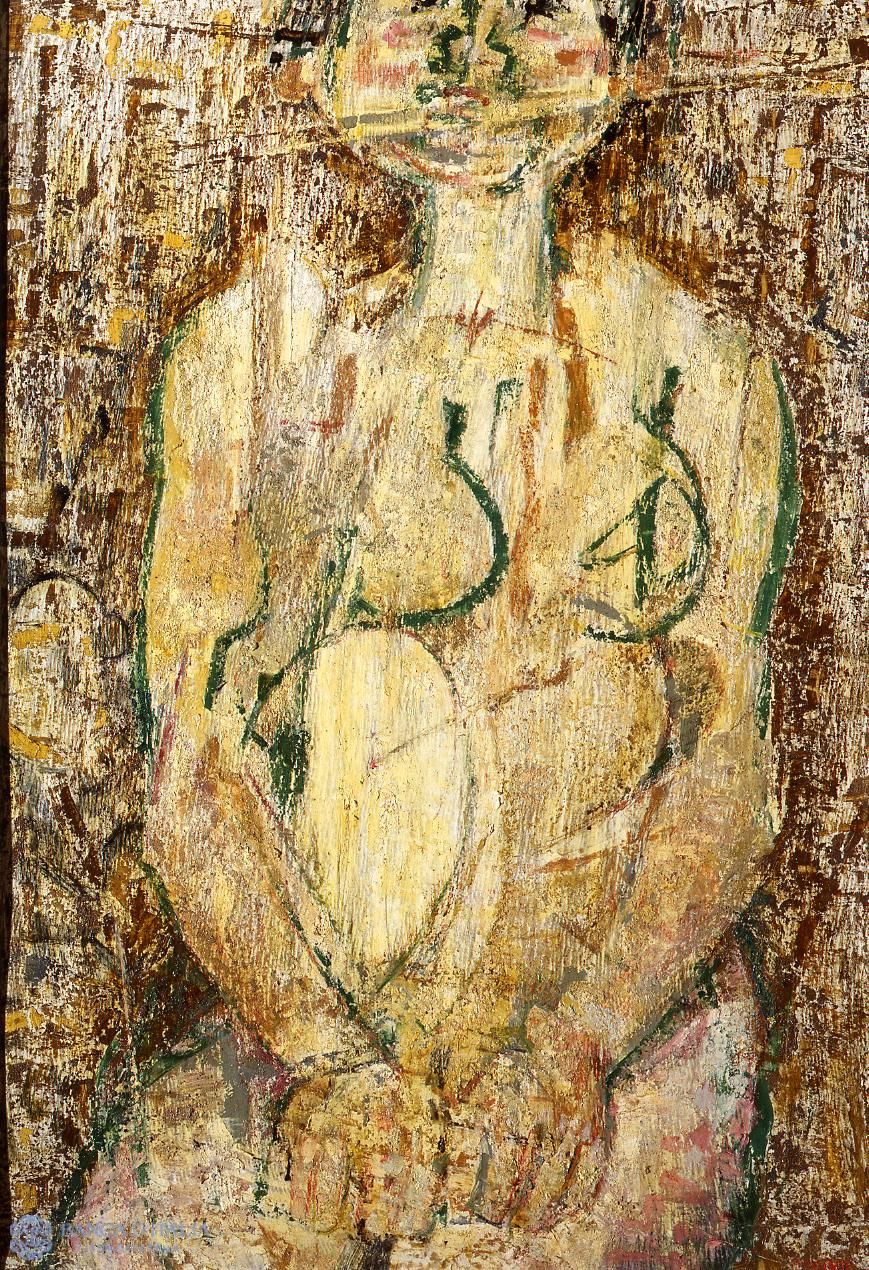Fausto Pirandello was born in Rome in 1899, the third son of Luigi Pirandello. He attended the Torquato Tasso secondary school, where he earned his diploma in 1917. He initially devoted himself to sculpture, then – for health reasons – to painting. One of his paintings was accepted at the Venice Biennale of 1926. This marked his debut in the most important national art exhibitions (most notably the Venice Biennali and Quadriennali in Rome) where he would be a regular presence both before and after the Second World War.
Between 1928 and 1930 he was in Paris, where in 1929 he held his first solo show. Back in Italy, the works he exhibited in Rome and Milan were steeped in paint (indeed, his first experiments in still lifes had appeared almost “sculptural” to perplexed Parisian critics), cluttered with symbols, allusive and mythologizing, close to the magic realism theorized by Bontempelli and veined by both the pessimism and irony of his father’s plays. By the time of the latter’s death in 1936, Fausto was already one of the most widely-acknowledged masters of what was then known as the “Scuola Romana” (joined, after Scipione died, by Mafai and Capogrossi).
As war approached, his painting became progressively more dramatic, quasi-Expressionist, a style that would characterize his work for the whole of the 1940s. In the decade that followed, he moved closer to the neo-cubist and abstract-concrete poetics that were so pervasive in Italy’s post-war culture. His efforts produced works of great meaningfulness which, however, failed to seduce the critics who had previously been close to him, and who did not now understand (as would also happen to Mafai) this new direction, apparently prone to the “abstract fashion”. He spent his last years in growing isolation from a society he no longer recognized as his own.
He died in Rome in 1975. The following year the National Gallery of Modern Art in Rome dedicated a major retrospective to him, the first act in a historical revisitation of Fausto Pirandello’s life and work that is still underway (the general catalogue was only published in 2009). A much-needed reappraisal to restore to him his rightful place in history.
Fausto Pirandello
Fausto Pirandello (Rome 1899 - Rome 1975)
20th century AD
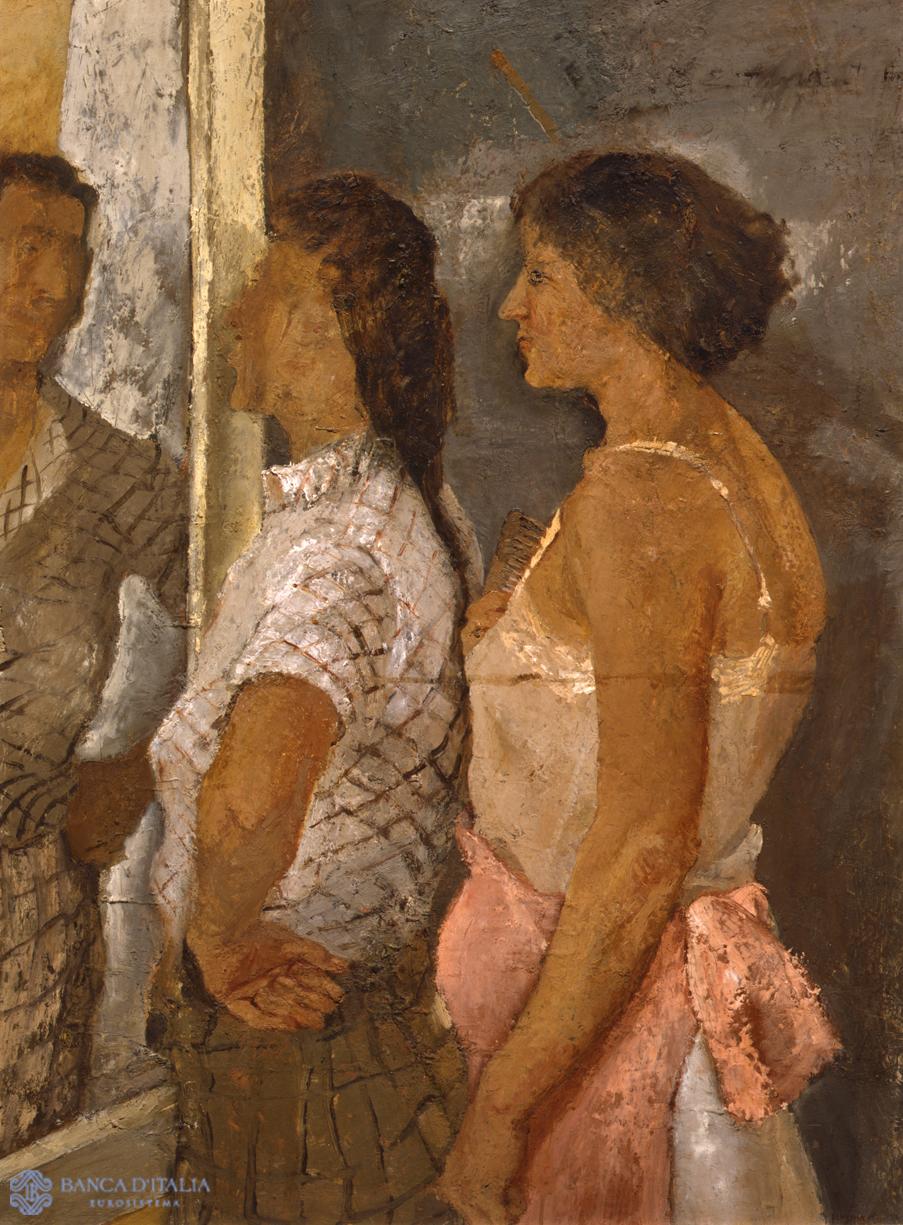
Compiler
Fabrizio D'Amico

